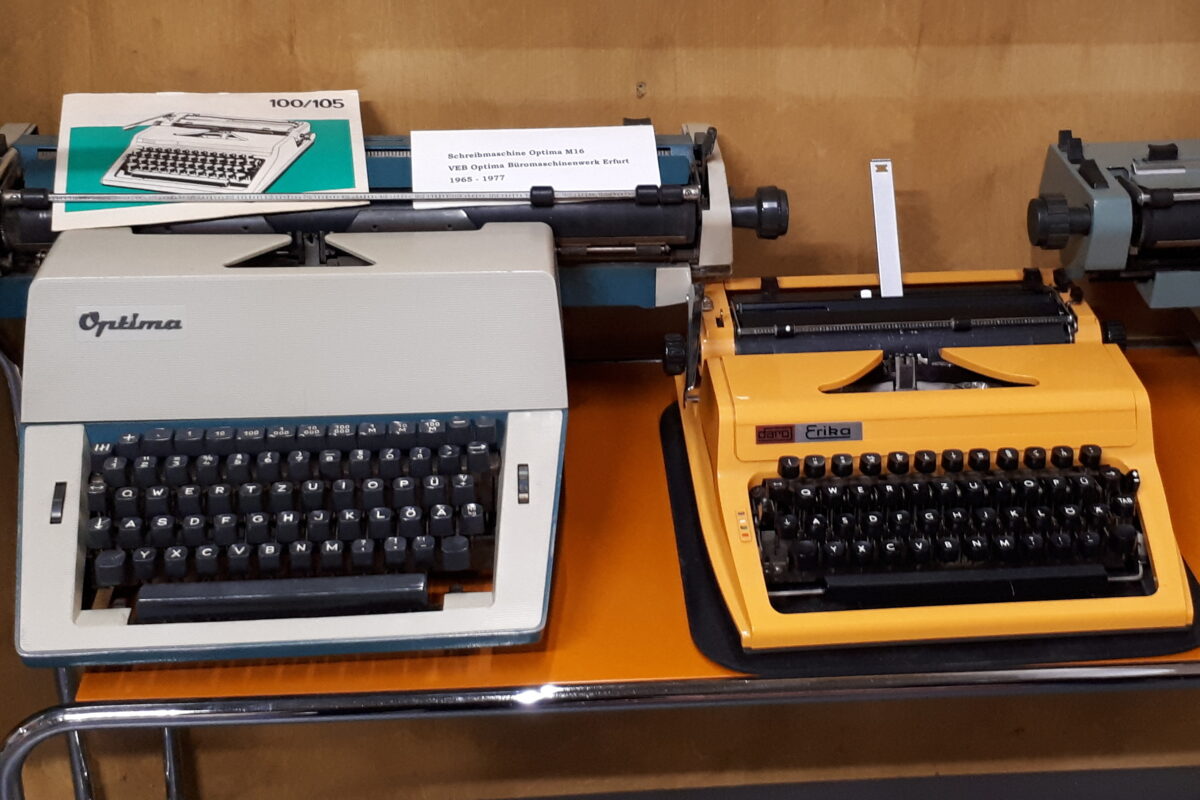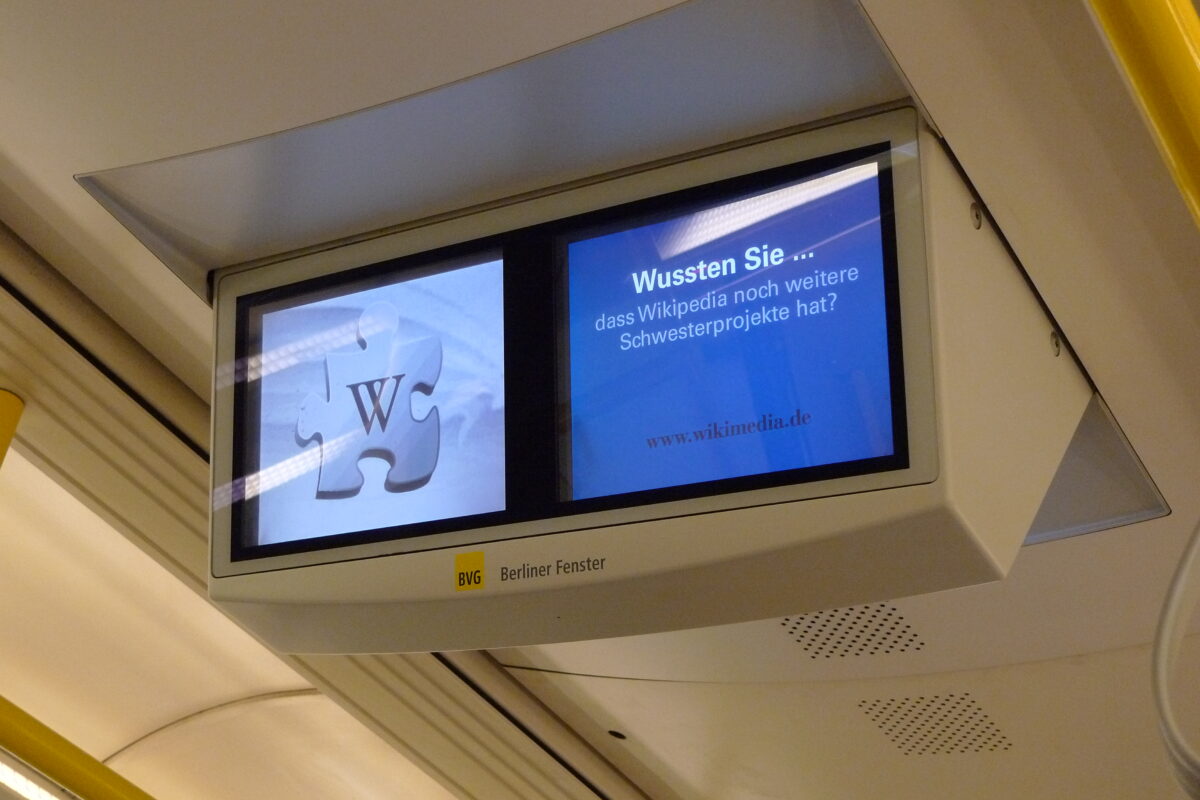Last Sunday, we met in Kreuzberg for the second Left Journalism Day School. This followed a Day School organised 6 months ago by theleftberlin website. The aim was to share information among people writing left-wing articles about socialist politics, and hopefully to win more collaborators for our website.
The Day School started with workshops given by Tom Wills from Radio Berlin International about making field reports for radio and by award winning film maker Tim Kelly about producing videos. Each talked about their experience in the field, followed by a discussion on how to apply what people have learned.
Taking Interviews
After lunch, Phil Butland from theleftberlin led a session on How to Take an Interview. You can see Phil’s presentation here.
Phil started by explaining why interviews are important for a website like theleftberlin, which largely depends on voluntary work. It enables to learn the perspective of an expert or someone centrally involved in a campaign, who may not have the time to write us an article, but often has half an hour free for a chat. It is also a format which is easier to read than most articles. Our research shows, that an audience is prepared to spend more time reading an interview, which is split into discrete sections than they are a “normal” article.
The first interviews on theleftberlin were taken by sending question to an interviewee and waiting for them to return written or recorded answers. This is the least time consuming activity for the interviewer, but it does put more burden on the interviewee, and it reduces the possibility of asking questions asking for clarification or more info on an interesting comment. For this reason, theleftberlin is moving to conducting most interviews face-to-face or online, which allows them to be more interactive.
This brought up the biggest single problem of interviews. If conducted properly, they are very work intensive for the person carrying out the interview, This is why theleftberlin is moving from interviews conducted by individuals to setting up teams which divide responsibility for different stages of the process. If you are interested in joining one of the teams, please contact us at team@theleftberlin.com.
Phil then went through the different stages in an interview (more detailed information in the presentation).
- Find a suitable interviewee (suggestions often made after the weekly editorial meeting).
- Contact the interviewee and agree when and where to meet (face-to-face or online)
- Make a list of 8-10 questions to ask and send them to the interviewee before the interview. You may not end up asking these precise questions, but they give an idea of what you’d like to cover in the interview.
- Record the interview and put it through transcription software. You then need to go through the transcription to correct transcription errors and remove hesitations and repetitions.
- Edit down the transcription to a reasonable length. You may rearrange questions and answers to improve the flow.
- Choose a title (usually the most compelling quote from the interview) and a subtitle (usually what the interview is about).
- Always send the edited transcription to the interviewee for approval and always offer them final edit.
- You are now ready to publish the interview.
Tom Wills then added some information about online interviews, which cannot be post-edited, which means, among other things, that the best interviewers and interviewees train themselves not to hesitate and to keep to the point.
The audience was then given an exercise – to prepare a set of questions for one of 8 interviewees currently on theleftberlin wishlist. The wishlist mainly contains the names of people who will either be speaking in Berlin soon or have specialist knowledge about an issue or a campaign which is currently in the news.
Storytelling and Research
Tina Lee, the Chief Editor of Unbias The News, then led a session on Storytelling and Research. You can see Tina’s presentation here.
Tina started by reminding us of the main points from her presentation at the First Left Journalism Dayschool: pick a catchy and unambiguous title for your article, start your story with a good anecdote, start by concentrating on a specific before moving out to the general picture, and finish your article by connecting it up with the start and showing which lessons (should have) been learned.
Tina explained how this works in practise by using examples from two recent articles from her Website – Elena Gagovska on Sexual Harrassment in North Macedonia, and Mahdi Garba and Modupe Abidakun on Vaccine Hesitancy in the Global South.
She insisted that stories should show, not tell – by using specific examples rather than dictating to the audience. You can also link different parts of information presented by highlighting the structural cause which connects them.
Tina also highlighted the importance of good research. Any issues that seem anomolous or possibly untrue should be fact checked, and evidence found to back them up. Unanswered questions in the middle of an article disrupt the flow – use hyperlinks to at least show that claims made in the article are based on proper research.
Tina finished off by introducing the concept of Google Dorking – how you can us Google to find the information you’re looking for. For example, if you’re looking for more information on political assassinations, just putting those 2 names into Google will only get you so far. Instead, think of real life examples of what you’re trying to research (eg Lincoln, Kennedy, Gandhi) to get more comprehensive answers.
Futher Research
After the Day School, Tina sent us the following links for people wanting to follow up her advice.
- To get news sent to your in-box, sign up for Newsletters by organisations like Statewatch and Lobby Control
- For a quick guide to using tweetdeck for monitoring, watch this video.
- African Arguments (Pan-African)
- The Caravan (India)
- The Wire (India)
- Rest of World (Global):
- Direkt36 (Hungary):
- We Are Solomon (Greece/ Europe)
- Lighthouse Reports (Netherlands/ Europe)
- Rappler (Philippines)
- Balkan Insight (Balkans)
- Outriders (Poland/ Global):
Summing up and What next?
We finished off by looking at the plans for theleftberlin in the next half year and beyond. Finally, Radio Berlin International had a live broadcast from the Event. Thanks to Magda and everyone from Palästina Spricht for their cooperation.
Our main project is setting up teams of interviewers, as explained above. If you are interested in helping here, please contact us. We are also looking for editors, translators, people active on social media and anyone who can help in any other way. Also Radio Berlin International always welcomes new presenters.
You are also invited to the open Editorial Meetings which we hold every Sunday night at 7pm. Because of the Traditional Armenian Lunch on Sunday May 29th, the next meeting will be in or around Bilgisaray, Oranienstraße 45. Please try to be there by 18.55.
We are hoping to have another Day School in around 6 months. Here are some of the things that we discussed getting even better next time:
- Even more exercises in which the audience can try things in practise.
- Better way of introducing new people – e.g. an exercise before people attend the event.
- Look at the possibility of a week-end long School (may need change of venue or funding model).
- Better use of space for simultaneous workshops to allow people to be loud without disturbing the other workshop.
If you were at the Day School and have further feedback, or if you have any other suggestions, please contact us at team@theleftberlin.com.



